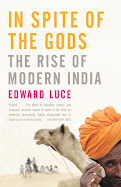-polyp.org.uk/cartoons
NO DEMOCRACY WITHOUT TRANSPARENCY
The only way to hold to the WTO and its procedures accountable for equal and fair representation is for the organization to assert a standard of 100% transparency in all affairs. In the new millennium and recent years especially, this issue has been recognized by WTO officials. Director-general Pascal Lamy has publicly admitted that the decision making procedures need to be re-modeled, stating that "the procedures and rules of this organization have not supported the weight of the task" (Albin 758).National economies and the socio-economic well being of their citizens are at stake, which is why lesser standards are unacceptable.
Despite the repeated emphasis on equal representation and the WTO director-general's admission that reform is necessary, the Quad, a select group of four countries continue to command an ambiguous yet tangible authority over WTO affairs. For a long time, the Quad has consisted of The United States, the European Union, Japan and Canada. The Quad members often lead what are known as 'green room' caucus meetings, which regularly exclude developing countries.(Albin 761) There are no rules regulating the assembly of these meetings, which makes their outcome unfair, regardless of the parties affected. In addition, because these meetings are held almost surreptitiously, it is impossible to determine what effect they have on subsequent decisions. The combination of inadequate legitimating procedures and lack of qualitative deliberations makes it unlikely that WTO outcomes will be just in the middle of power politics, exclusion, bargaining, and uncritical knowledge. The consensus reached in this multilateral sphere is most likely to be coerced and one-sided- to the advantage of the western countries. Proponents for the Quad contest that other member states form alliances, however the latter are used to represent common socio-economic interests between geographically neighboring states, while the Quad is simply a coalition of the most economically developed member states, which for a lack of transparency, lead us to believe that it is for the purpose of hegemony. The group should either state its primary purpose for formation and adhere to the highest standards of transparency, or be dissolved.
TBC..
Works Cited
Albin, Cecilia. "Using Negotiation to promote legitimacy; an assessment of proposals for reforming the WTO." International Affairs 84.4 (2008): 757-75. Print.








This comment has been removed by a blog administrator.
ReplyDelete